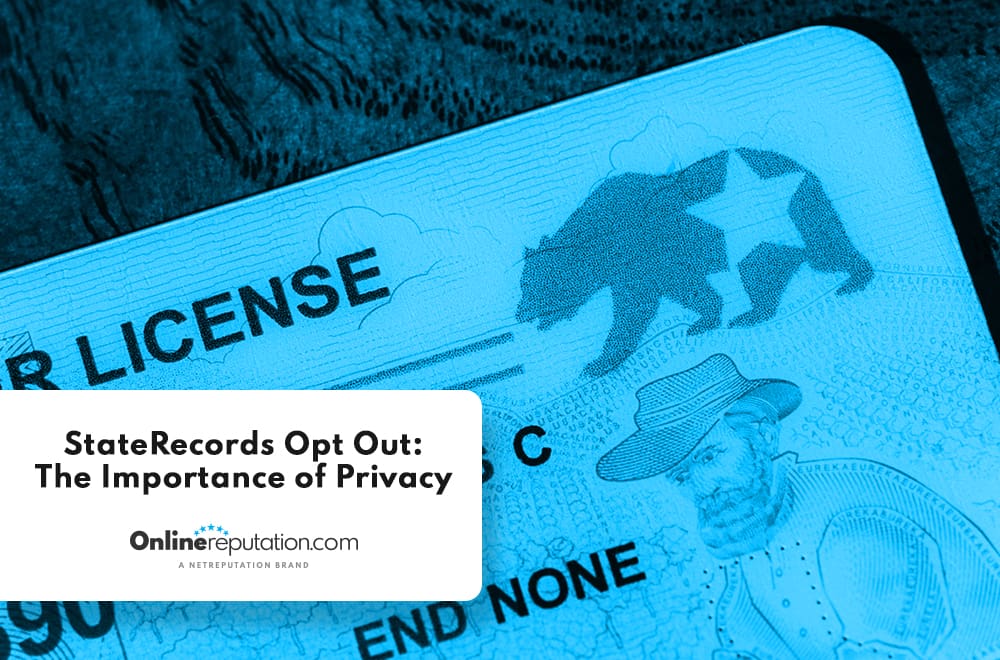
This guide offers strategies to enhance online reputation by removing unwanted articles from Google search results. It addresses issues such as outdated data, negative content, and personal information exposure, providing actionable steps to regain control over your online persona. This guide empowers individuals to safeguard and manage their online reputation effectively by exploring reasons for article removal, giving step-by-step instructions, outlining removal timeframes, and offering insights for challenging removals.
Key Takeaways:
- Removing outdated or damaging articles from Google search results can protect your online reputation.
- You can request that articles be removed by contacting the website owner, submitting a legal request, or using Google’s removal tool.
What are Google Search Results?
Google Search Results encompass the first page of listings displayed when users search on Google, presenting relevant web pages, images, videos, and more. These results are generated through intricate algorithms analyzing numerous factors to determine the most appropriate and authoritative content. The ranking of search results is pivotal in driving organic traffic to websites, with higher-ranking links receiving more clicks. Various content formats within Google search results, like featured snippets and knowledge graphs, offer users quick answers and diverse options based on their search intent.
Why Would Someone Want to Delete Articles from Google Search Results?
Individuals and businesses often seek to delete articles from Google Search Results to mitigate the damaging effects of negative news articles on their online reputation. When prominently ranked on Google, such articles can significantly influence how they are perceived, potentially leading to loss of trust, credibility, and business opportunities. Proactively managing and controlling online information by removing negative news articles becomes crucial in shaping a positive and accurate reputation. Deleting these articles from search results is a key strategy in shaping the narrative surrounding one’s online presence and safeguarding one’s reputation.
Outdated or Inaccurate Information
One reason to delete or remove news articles from Google Search Results is the presence of outdated or inaccurate information that can mislead users and impact the credibility of the content.
Users encountering outdated or incorrect content in search results may lead to confusion and frustration. In a digital landscape where information constantly evolves, accuracy and relevancy are crucial in maintaining trust with online audiences. Search engines like Google prioritize providing users with the most up-to-date and credible information, making it essential for content creators to regularly review and update their articles. Inaccurate data harms a website’s reputation and affects its ranking in search engine results, potentially resulting in decreased visibility and traffic.
Negative or Damaging Content
Damaging content in Google search results can tarnish an individual’s, news organization’s, or business’s reputation, leading to adverse consequences and the urgency to remove such unfavorable articles.
When negative information surfaces online, it can significantly impact how others perceive the person or company. Reputation damage caused by harmful articles and news stories can affect job opportunities, business partnerships, and credibility. In today’s digital age, where information spreads rapidly and remains accessible indefinitely, addressing these issues promptly is crucial. Utilizing effective strategies to manage and counteract harmful content can help minimize the long-term implications on one’s online presence.
Personal Information Exposure
Exposure of personal information in Google Search Results can pose privacy risks and security concerns, underscoring the need to safeguard personally identifiable information and control its visibility online.
When personal details such as names, addresses, contact information, or financial data are readily available on search engines, it could lead to identity theft, stalking, or unwanted marketing approaches.
Protecting your privacy starts with being mindful of the data you share online and implementing robust security measures. It’s crucial to be aware of privacy protection tools like encrypted messaging apps, VPN services, and strong passwords to shield your personal information from falling into the wrong hands.
How to Remove Articles from Google Search Results?
Various strategies can be employed to remove articles from Google Search Results, including contacting website owners, submitting legal removal requests, using Google’s removal tool, and optimizing online presence to aid in content removal. A crucial initial step involves directly contacting website owners to request content takedown or removal of sensitive information. This direct communication often yields positive outcomes, especially when accompanied by valid reasons for removal. Additionally, submitting formal legal requests for removal carries significant weight and can prompt website owners to act promptly, especially if the content violates laws or policies.
Contact the Website Owner
One approach to removing articles from Google Search Results is to contact the website owner or news article directly and request that the content be removed or updated to reflect accurate information.
Clarity and professionalism are key aspects to consider when contacting website owners. Polite yet firm language can convey the importance of the request without causing conflict.
Clearly stating the reason for the removal request and providing evidence to support it can help expedite the process. Cooperation is often more effective than confrontation, and demonstrating compliance with removal policies can encourage website owners to act promptly. Respecting their time and efforts can also foster a more favorable outcome in these communications.
Submit a Legal Removal Request
In cases where content violates legal regulations or privacy laws, individuals can submit a legal removal request to Google or website administrators to address the non-compliant or harmful content.
Legal removal requests are essential mechanisms for addressing inappropriate online material. Submitting such requests involves following specific procedures to ensure compliance with established regulations and laws. These requests must clearly outline the legal grounds for removal, such as copyright infringement, defamatory content, or personal information disclosure without consent.
It is crucial to adhere to privacy laws to safeguard individuals’ rights and prevent unauthorized dissemination of sensitive data. When submitting removal requests, individuals should understand the role of regulations in governing content removal processes, ensuring that each request is justified and aligns with legal frameworks.
Use Google’s Removal Tool
Google provides a removal tool allowing individuals to request the removal of specific web pages or content from Google Search Results through a user-friendly interface.
Google’s removal tool is a handy resource for anyone needing to manage what appears in search results. This tool allows users to navigate the steps to submit removal requests and follow through with the necessary procedures. Once a request is submitted, users can use the tool to monitor the status of the removal process, ensuring transparency and control over the content. It is essential to familiarize oneself with Google’s removal policies to ensure compliance and successful content removal.
Optimize Your Online Presence
To enhance the removal of articles from Google Search Results, individuals can focus on optimizing their web page and online presence, engaging reputation management services, and monitoring their visibility moving forward.
Proactive online reputation management is essential for individuals seeking to safeguard their digital persona. Individuals can effectively shape their online image by proactively addressing negative online content, maintaining a robust online presence, and utilizing professional services. It’s crucial to strategically leverage keywords and entities related to reputation management to boost online visibility. Keeping a positive online image through consistent monitoring and engagement reinforces credibility and trustworthiness in the digital space.
How Long Does It Take for Articles to Be Removed from Google Search Results?
The timeframe for removing articles from Google Search Results can vary depending on factors like the indexing process, search result volume, and complexity of removal requests, spanning from days to weeks. Search engines continually crawl and index new content, impacting the speed of article removal. Higher search result volumes may lead to longer removal times, particularly for popular search terms. The intricacies of the removal process, such as verifying ownership or legal grounds, can also cause delays. Additionally, different search engines may have distinct algorithms affecting removal timelines.
What Can You Do If an Article Cannot Be Removed from Google Search Results?
If removing an article from Google Search Results isn’t feasible, individuals can consider using suppression services to diminish its visibility. Concurrently, proactive reputation management tactics are vital. This includes monitoring online mentions, promptly addressing negative feedback, and employing SEO techniques to promote positive content creation. Crafting engaging blog posts, maintaining professional social media profiles, and actively engaging with online communities can all enhance one’s digital presence.
Push Down the Negative Article with Positive Content
To mitigate the impact of negative articles in search results, individuals can strategically promote positive content that highlights their strengths, achievements, and favorable aspects, aiming to overshadow the negative narratives.
One effective strategy is to showcase success stories and client testimonials on websites and social media platforms, providing authentic and credible information for audiences to engage with.
Creating high-quality blog posts, videos, and visuals emphasizing expertise and positive experiences can help establish a robust online presence.
Responding promptly and professionally to criticism or negative feedback demonstrates transparency and a commitment to addressing issues, fostering stakeholder trust and loyalty.
Utilizing search engine optimization techniques and targeted keywords can also enhance visibility and ensure positive content ranks higher in search engine results, pushing down unfavorable articles.
Focus on Building a Strong Online Reputation
Building a solid online reputation involves proactive reputation management efforts, addressing reputation damage, monitoring your online news mentions, and consistently showcasing positive attributes to enhance credibility and trustworthiness.
A positive online reputation is crucial in today’s digital age, influencing how their audience perceives individuals and businesses. A well-managed online image can increase customer loyalty, create better partnership opportunities, and increase conversion rates. To cultivate this positive online presence, engaging with customers, responding to feedback promptly, and maintaining a transparent communication strategy are essential.
One powerful tactic in reputation management is leveraging social media platforms to engage with customers and address any concerns publicly, showing that the business values and respects its customers’ opinions.
Regularly monitoring online mentions using tools like Google Alerts or specialized reputation management software can help promptly catch and address any negative publicity, minimizing potential damage.
Consistency in messaging and branding across all online channels is critical to building and maintaining a solid reputation. Ensuring the messaging aligns with the business’s values and promises reinforces trust and credibility.
Conclusion
Managing content in Google Search Results is a multifaceted endeavor that requires a strategic approach. Content removal eliminates outdated or negative content, while reputation management enhances online image through positive interactions. Additionally, indexing control optimizes content visibility by ensuring search engines properly index it. Staying vigilant and adaptable is essential to navigating the dynamic digital landscape and upholding a positive online presence despite evolving search engine algorithms and trends. Regular monitoring of search results and audience feedback can provide valuable insights for refining strategies and maintaining relevance in an ever-evolving online environment. Updating and optimizing content to align with current trends and user preferences further strengthens online reputation and visibility.
Frequently Asked Questions
How long does it take for Google to remove deleted articles from their search results?
Google can take a few days to a few weeks to update its search results and remove deleted articles. This timeframe can vary depending on the frequency of Google’s crawls and updates.
Is there a way to expedite the process of removing articles from Google Search Results?
If you need an article removed urgently, you can submit a legal request to Google to expedite the process. However, this option should only be used in extreme cases, as it may require legal action.
Can I delete articles from Google Search Results if they negatively or damage my reputation?
Yes, you can request that the website owner remove the content or submit a legal request to Google for removal. However, Google will not remove content without a valid legal reason, such as copyright infringement or personal information being shared without consent.
You might also like
StateRecords Opt Out: The Importance of Privacy
This guide offers strategies to enhance online reputation by removing unwanted articles from Google search results. It addresses issues such …
